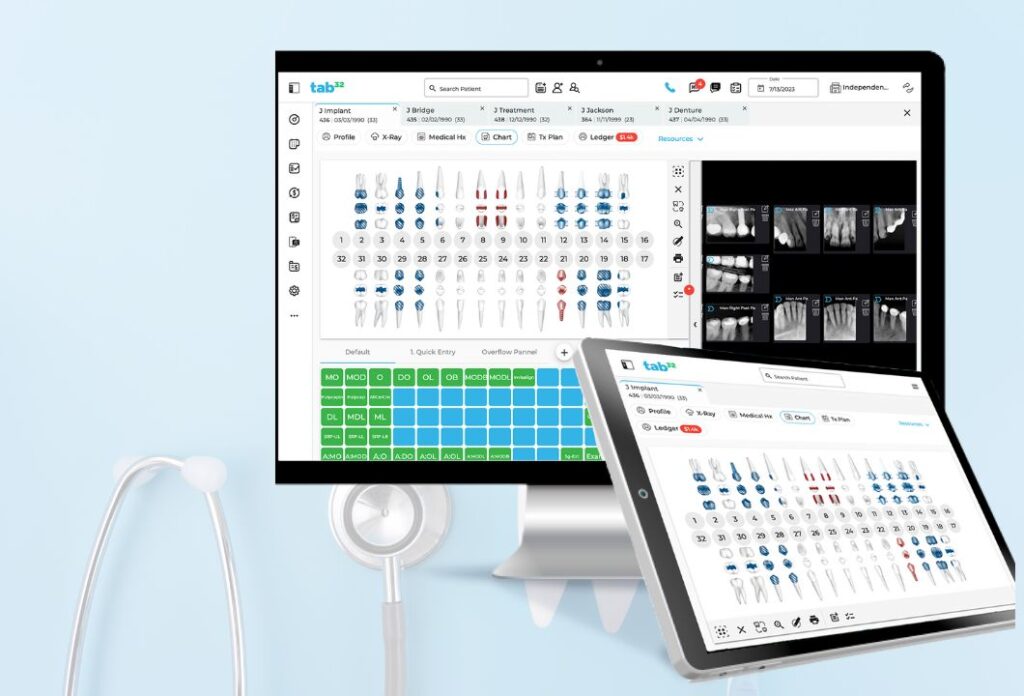
In the contemporary healthcare landscape, technological advancements are revolutionizing how data is managed and utilized. One such groundbreaking innovation is the implementation of open data warehouses in dentistry. These warehouses, serving as centralized repositories for diverse dental data, have the potential to transform operations within Dental Service Organizations (DSOs), bringing about efficiency, enhanced patient care, and informed decision-making.
What is an Open Data Warehouse in Dentistry?

An open data warehouse is a comprehensive and centralized database that consolidates a wide array of data, including patient records, treatment histories, administrative information, financial data, and more. In the realm of dentistry, these warehouses integrate information from various sources like electronic health records, imaging systems, practice management software, and even patient feedback.
Advantages for Dental Service Organizations:
1. Enhanced Patient Care:
Open data warehouses provide DSOs with a holistic view of patient information. Dental professionals can provide more effective and personalized care with access to a patient’s complete dental history, including past treatments, allergies, medications, and other relevant data. This access also facilitates the identification of trends or patterns in patient health, enabling proactive preventive measures.
2. Improved Decision-Making:

Informed decisions are pivotal in the healthcare domain. Open data warehouses empower DSOs by offering insights through analytics and reporting tools. Decision-makers can identify areas for improvement in service delivery, operational efficiency, or resource allocation based on real-time and historical data.
3. Streamlined Operations:
Centralizing data simplifies administrative tasks within DSOs. It reduces the time spent on managing disparate data sources, leading to more efficient workflows. With streamlined operations, resources can be redirected to more critical tasks, ultimately benefiting both the organization and the patients.
4. Research and Development:
Aggregated data in open warehouses can be utilized for research and development purposes. It enables dental organizations to contribute to scientific advancements, better treatments, and improved technologies in the dental field. The data can also be anonymized and shared for broader research initiatives.
5. Regulatory Compliance and Security:

Data centralization plays a pivotal role in the functioning of healthcare organizations, especially those that deal with sensitive patient data. By implementing secure and compliant data centralization practices, DSOs can ensure adherence to regulations like HIPAA, which are designed to safeguard patient privacy and data security.
HIPAA compliance is mandatory for healthcare organizations that handle patient data. DSOs, in particular, can benefit significantly from centralizing their data securely and competently. By doing so, they can ensure that patient data is protected from unauthorized access, theft, or misuse.
Centralizing patient data makes managing and monitoring data access easier for DSOs. It helps them quickly identify unauthorized access attempts or potential security breaches. In turn, this can help prevent data breaches and protect patient privacy.
Challenges and Considerations:
While the benefits of open data warehouses in dentistry are promising, several challenges must be acknowledged and addressed. Integration of disparate systems, ensuring data accuracy, addressing privacy concerns, and securing sensitive information are critical hurdles that need to be overcome. Additionally, there may be resistance to change among staff, requiring comprehensive training and change management strategies.
Conclusion:
Open data warehouses in dentistry represent a significant leap forward in the management and utilization of patient data within Dental Service Organizations. The amalgamation of diverse data sources into a single, accessible repository can revolutionize patient care, inform strategic decisions, streamline operations, and foster innovation within the field.
To fully realize the potential of these data warehouses, it’s imperative for dental organizations to invest in robust technology, prioritize data security, and ensure staff readiness for this transformative shift. As these systems evolve and become more prevalent, they hold the promise of significantly improving the landscape of dental healthcare.
With the right implementation and management, open data warehouses can be a game-changer for Dental Service Organizations, marking a new era of efficiency and improved patient outcomes in dentistry.




